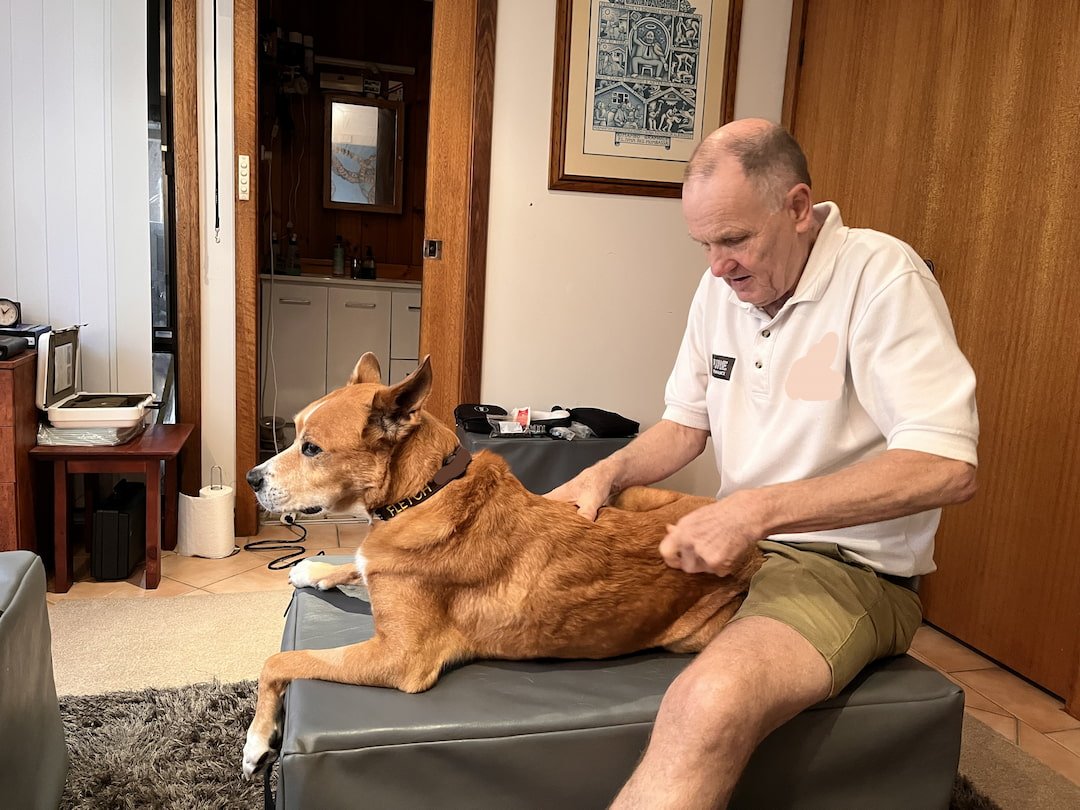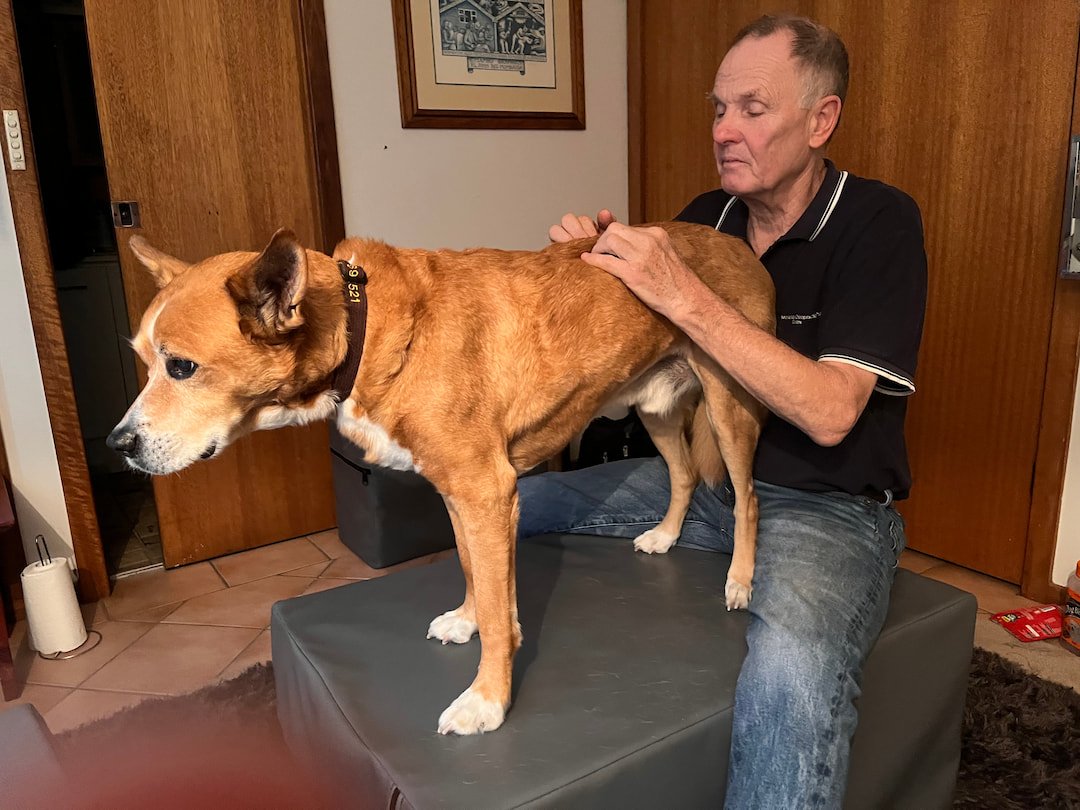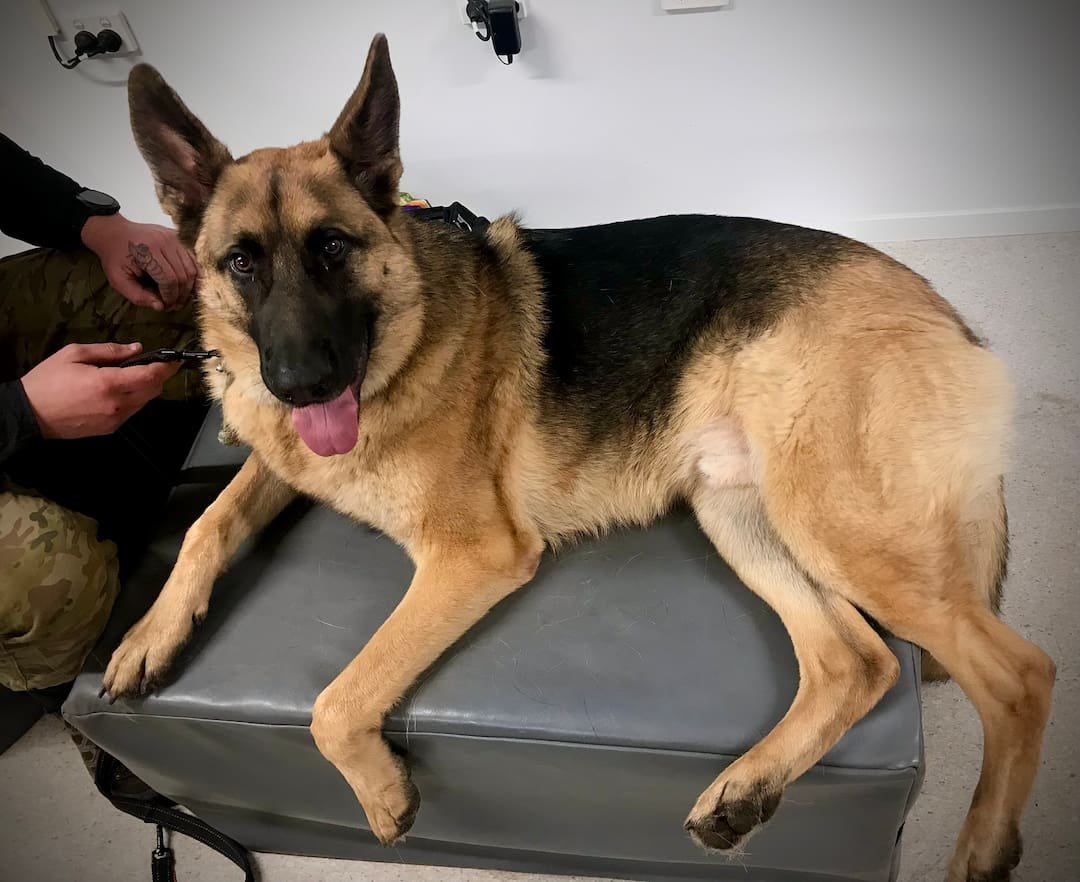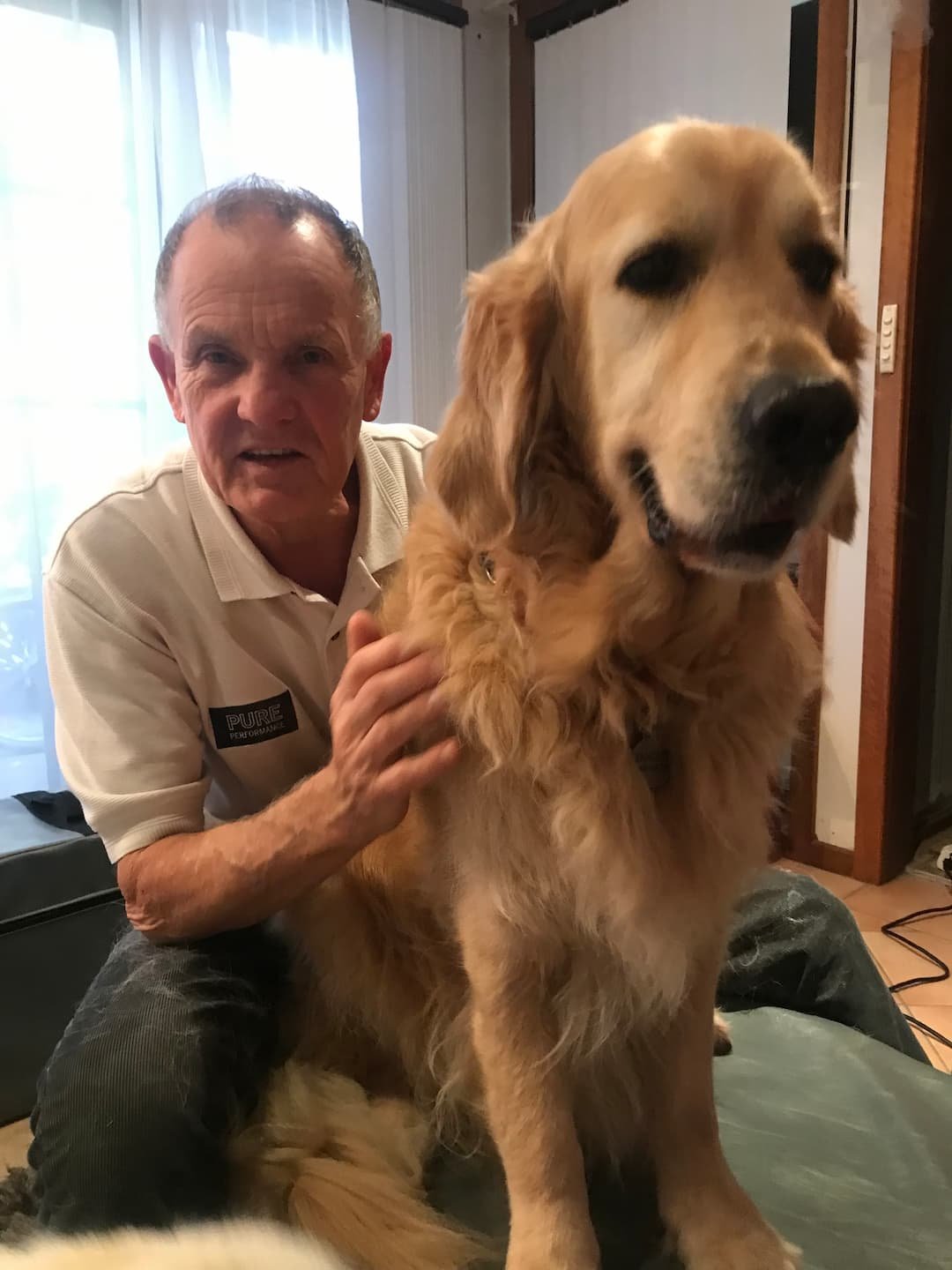
Can Chiro as a therapy support your senior dog’s mobility? The answer is a resounding YES!!!
As dog owners, we all eventually come to the realisation that our best friends and companions become seniors.
For some dogs, this happens very quickly, and for other dogs, it takes longer. Eventually, however, they will all slow down, (this is where we point out that the size of a dog determines when it is considered a senior. Check out our guide here www.thesilverwoof.com/how-old-is-a-senior).
You may notice them walking a little slower or not as far as before. Testament to their devotion and stoic nature, our dogs will continue to do what it takes to come out with us, walking can still be the highlight of their day. Without complaining they will get up to please us.
We usually start to notice gradual changes, often small subtle changes. Like the walk becoming a stroll or a hesitancy to climb the stairs, jump in and out of the car and get on and off the couch. Our 4-legged friend seems to just slow down or not be so eager to do things.
Often, we will notice sleeping will become more frequent, and getting up or down can be an effort. Pain can become a factor as our dogs will often suffer in silence. They can‘t go around telling us that it hurts to walk or get up. As owners, we do start to notice. Sometimes there will be a yelp or a whimper, usually, however, it is only a look or glint in the eye or a sigh.
If you are watching out for these signs you will see them. Some breeds are so stoic that hiding pain is in their make-up.
What can we do to help?
We can see and accept that things have changed. A great deal of time these changes occur gradually, there have been no falls, injuries, or traumas that we can recall. We can see our Vet and have medications to help with pain or inflammation. We are often told it’s just age. It catches up with all of us, 2 and 4-legged alike, and we are told that’s it.
In the words of local Animal Chiropractor, Neil Gregory…
“As an Animal Chiropractor, I often see our dogs at this stage of life. Animal Chiropractic can help all dogs, whether small or large.
Chiropractic treatment does not replace traditional veterinary medicine, however, it can provide additional means of diagnosis and treatment options for spinal problems, as well as biomechanical-related musculoskeletal disorders. Chiropractic is also very effective for the treatment of pain both acute and chronic, especially pain caused by biomechanical problems.
Animal Chiropractors are either Chiropractors or Vets, that have been specially trained in Animal Chiropractic.
In my case, I am a Chiropractor with many years of experience treating 2-legged patients. I had a passion to treat and help animals who are both in pain and need help with mobility.
I went to study at Options for Animals College of Animal Chiropractic in Kansas City USA. My class was a mix of Vets and Chiropractors from all around the world. The study was intensive and included both large and small animals. Graduation also included certification as a member of The Animal Chiropractic Association.
Chiropractic treatment on our animals includes adjusting joints that may be restricted or subluxated. Mobilising and manipulating the spinal facet joint and peripheral joints, plus, Soft Tissue work including massage.
We can use our hands plus some devices to help us achieve our goals. We may use instruments such as Laser therapy to also assist in care. Care will also include exercises and advice such as rehabilitation methods to enable our dogs to get back on their 4 feet and reduce their degree of pain.
Do our dogs enjoy treatment?
Initially, dogs can wonder what I am doing, however, they quickly feel the changes and improvements. All dogs generally love returning for follow-up treatment. It is very common to receive a terrific welcome on their return. To see dogs walking better, and their tails wagging is my favourite treat.”
For seniors or younger dogs with joint damage, natural dietary supplementation such as Technyflex Canine (green-lipped mussel extract) is a very effective weapon in the fight against inflammation and pain associated with joint damage and osteoarthritis. Neil has seen the difference that Technyflex has made for his equine and canine clients, and he now stocks it in clinic.
Neil Gregory is based in Mona Vale on Sydney’s Northern Beaches. He practises at the Mona Vale Chiropractic Centre and is always delighted to take on new four-legged friends and patients. For appointments with Neil, call (02) 9997 5773 or visit www.monavalechiropractic.com.










